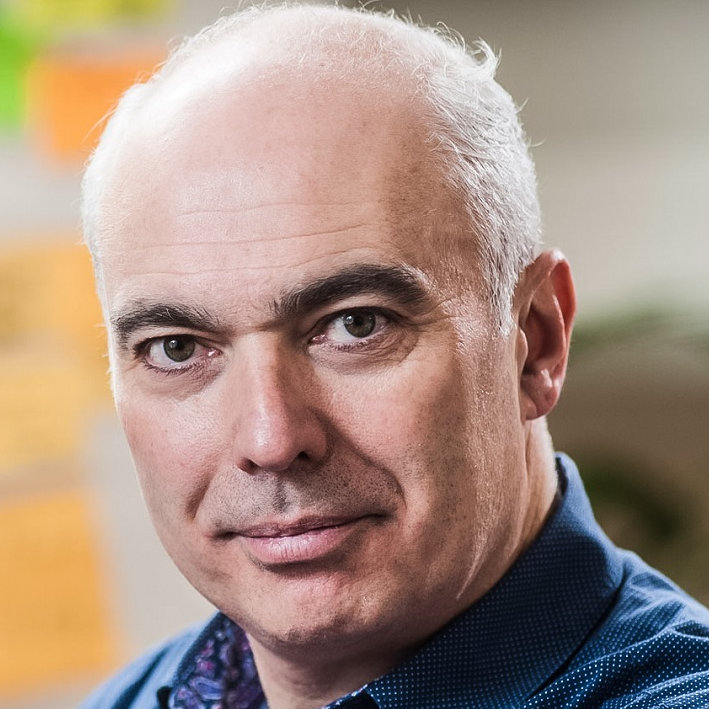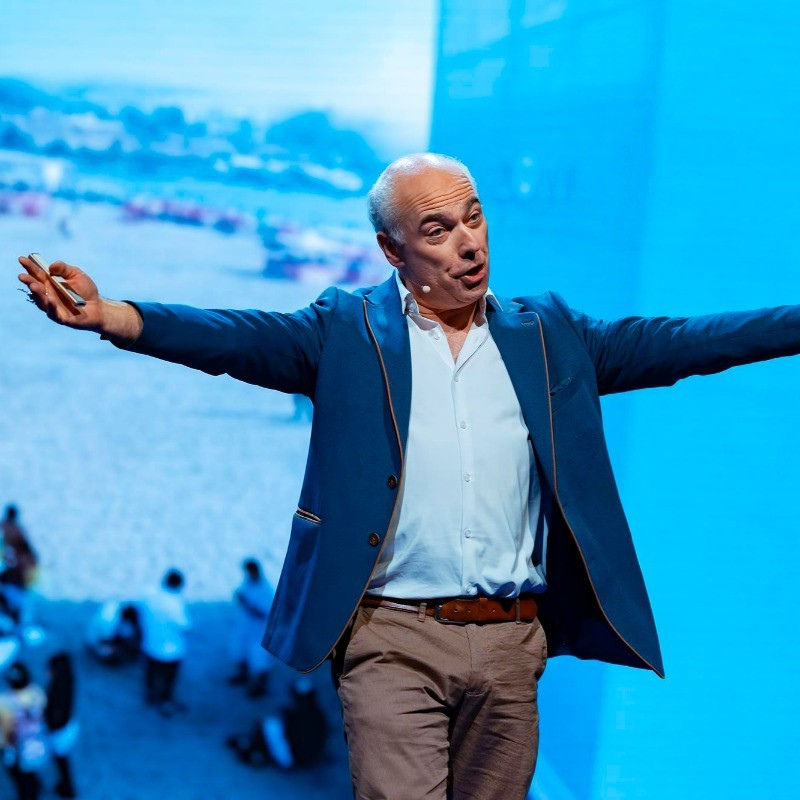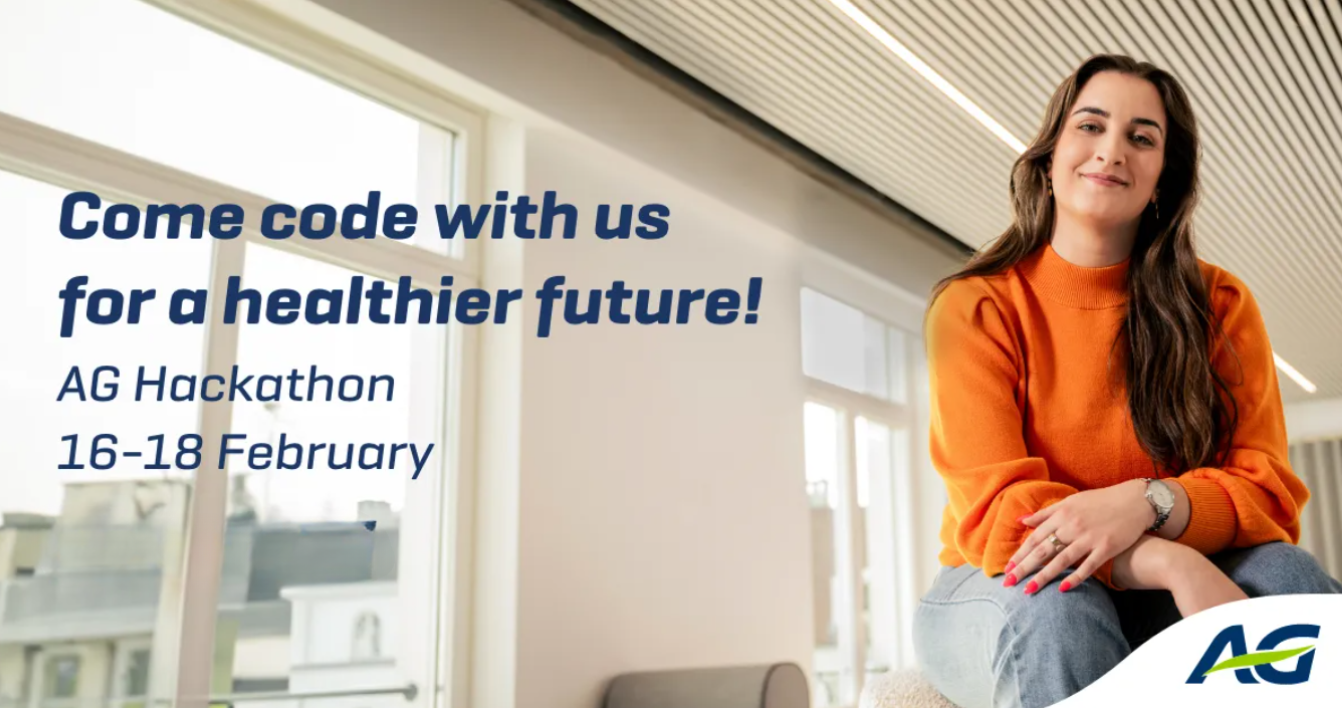
SABINE DURY
Head of IS Employee Benefits -
Heath Care and Financial team
In this article
Preventing instead of curing: an ancient but groundbreaking concept
“Imagine paying a healthcare provider to keep you healthy rather than of curing you.”. This simple but mind-bending question and his experience as a molecular oncologist prompted Koen Kas to reassess his role as a healthcare provider.
“As an oncologist, I’m sadly confronted with many patients passing away. Over the years, these tragedies made me rethink what and how I and my peers do things. After learning how members of an ancient Chinese community paid their doctors to keep them healthy and stopped once they got sick, I became enthralled by the idea of shifting the onus in healthcare from the purely reactive and curative to the proactive and preventive.”, Kas explains.
The Belgian healthcare futurist champions a model that isn’t just about treating diseases but preventing them through engaging and delightful means. Genomics* and technology play a crucial part in his vision:
"Through genomics, the study of genes and their functions, we can detect individual genetic predispositions to certain diseases before birth. We can prevent people from getting seriously ill by analyzing these genes and leveraging tech. By integrating personalized health plans with digital technologies, like wearables, we can address future health challenges head-on. It would be unethical to not fully leverage these possibilities."

Who is Koen Kas?
Additionally, preventive healthcare must be enjoyable, according to Kas. At first glance, this might seem like an oxymoron, but it makes sense. Imagine a prediabetic patient whose health data is monitored by a medical team through a wearable. If that patient went through a health scare or made a recent lifestyle change that might jeopardize their health, one of their physicians would use the data to devise a personalized health plan. Instead of imposing it, which might hamper the adoption of the health plan, the physician could use gamification or empathy through wearables to ensure the patient follows the health plan to a tee. Koen Kas experienced this firsthand:
“One of my loved ones recently went through a health scare that required them to take medication daily. Anticipating forgetfulness, we acquired a vocal virtual assistant tasked with reminding them to take their medication on time. At first, it did so with its original robotic voice, which wasn’t as effective as we hoped. It felt too impersonal and wasn't as effective as we hoped. So, we programmed my voice into the virtual assistant. Now, my voice reminds my family member to take their meds, which feels a lot warmer and actually motivates them."
This illustrates that preventive healthcare is more than avoiding illness. It’s about creating a seamless daily experience that enriches life and makes health management an integral, enjoyable part of our daily routines. At AG, we cosign that vision. It’s what being a “supporter of your life” is about. It’s about ensuring our clients enjoy their lives as safely and healthily as possible. And what better way to turn our commitment into reality than to help prevent people from getting sick?
Gen AI: the key to preventive and delightful healthcare
Technology, particularly AI and genomics are paramount to a proactive healthcare model. Researchers can now analyze and sift through vast genetic datasets quickly and accurately to identify patterns and mutations predisposing individuals to specific health conditions. This enables healthcare providers to develop precise preventive health plans and treatments tailored to an individual's genetic makeup at an unprecedented speed.
Gen AI also has the potential to democratize knowledge and empower individuals. An AI-powered tool that enables them to analyze their genetic data and projects the impact specific lifestyle changes could have on potential health risks, might prompt individuals to proactively adopt healthier daily routines.
Some companies leverage Gen AI to predict future viruses and develop cures for them. Airbus – yes, the aircraft manufacturer – did so recently. It leveraged AI to analyze existing corona strains and predict possible future strains based on those findings. They then used those findings to create synthetic antibodies for future strains and spray these in their planes to prevent an outbreak of a yet-to-exist coronavirus.

Koen Kos advocating the benefits of preventive and delightful healthcare
Gen AI will also revolutionize medical developments. Many laboratories still rely on physical tools to test and analyze millions of chemicals to detect antibodies. Gen AI digitizes that process, enabling researchers to find the required antibodies in days instead of months or years. This dramatically shortens the drug development process. While these processes currently take 10 to 12 years, we’re looking at a cycle of 6 years by the end of 2024 and 4 years by 2025.
The same effect is to be expected in clinical studies. Many researchers use AI tools to bypass patients and control groups, and generate and rely on synthetic data. Synthetic data is created through AI algorithms and statistical methods and closely resembles genuine data. These allow researchers to scale clinical studies and slash the average time a study takes by up to 70%.
What’s stopping us from adopting a preventive healthcare models?
While AI brings us closer to preventive healthcare models, many roadblocks keep us from getting there.. The largest roadblock is a lack of awareness. Many, if not most, healthcare professionals aren’t familiar with preventive healthcare and wouldn't know how to apply it. They lack the technological knowledge and resources and often aren’t privy to the benefits it presents for them and, more importantly, their patients. However, Koen Kas senses change is in the air:
“The difference between when I started nine years ago, and now is staggering. Back then, my audience mostly consisted of doctors. And while they understood the benefits, they didn’t grasp the urgency. Whereas today, I talk to a wide variety of healthcare and health tech professionals, who are all raring to go and contribute to the shift.”
Although Kas is making progress, this effort requires support from our educational system. Current and future healthcare providers should get sufficient knowledge and resources during their courses. Students need to be trained in how to prevent diseases and learn how to use technological tools to do so.
The importance of monetization
The perceived lack of monetization potential is a second large hurdle. And a prime example of lack of awareness. Healthcare professionals, hospitals and insurers often can't envision how preventive healthcare can be monetized. Firstly, preventing conditions from occurring reduces long-term healthcare costs.
Proactive healthcare also introduces new revenue streams. Rather than only treating a single diabetic patient, for instance, healthcare providers could use emerging technologies and genomics to proactively provide real-time data-based and preventive wellness programs, health screenings and health plans tailored to a multitude of prediabetic. This would turn healthcare providers and insurers into partners in wellness.
The data-driven aspect of preventive healthcare also enables more precise risk assessments and personalized offerings, leading to more efficient resource allocation and better patient outcomes. Ultimately, preventive healthcare offers a win-win: a better quality of life for consumers, improved provider outcomes, and a more profitable, sustainable model for insurers, aligning with Kas' vision of a healthcare system focused on wellness over illness.
AG at the forefront of change

Our promo poster for the hackathon
As Belgium's largest insurer, these roadblocks compelled us to take matters into our own hands and help move this vision forward and. So, instead of sponsoring hackathons, like we did in the past, we organized one. We wanted to help transform healthcare and elevate AG's profile as a forward-thinking company.
Koen Kas kicked off the weekend with an awe-inspiring keynote, laying out challenges for teams to create preventive and engaging healthcare solutions. And the teams delivered. My colleagues and I were blown away by the ingenuity, creativity, the ambition, and collaborative spirit between teams. Naturally, all participants wanted to win. However, they all generously shared ideas and helped their "competitors", which led to great ideas, and made the jury's job much harder than expected.
The Originality Award went to two teams instead of one. Their concepts were simple yet captivating, sparking an instant desire to engage. A third team stood out for the ingenuity of their idea but also compellingly presented it, earning them the Best Pitch Prize. A fourth team stood out for their technical prowess and won the technical achievement award. The field was so strong that the jury created a new prize on the spot and gave a team the nod for their tenacity and collaborative spirit.
